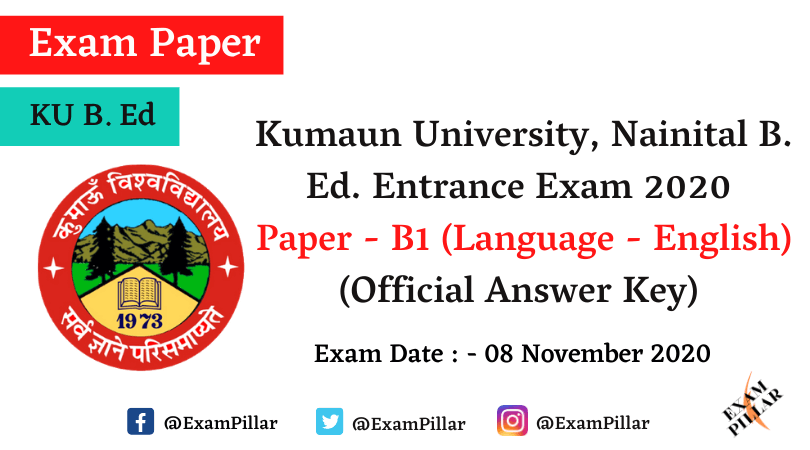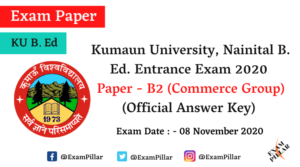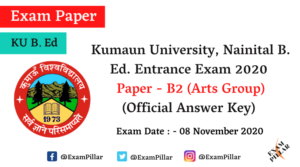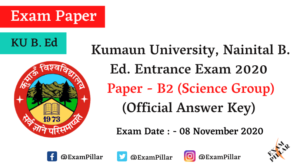Directions (Q. No. 39 to 42): Fill in the blanks in the following sentences with the most appropriate set of words.
39. He gave me an additional ______ of Rs. 200/= a month by ______ of the commissioner
(A) allowance, permission.
(B) pay, allowance.
(C) salary, refusal
(D) payment, agreement.
Show Answer/Hide
40. Due to ______ rainfall this year, they had to ______ cut in water supply.
(A) heavy, regulate.
(B) regular, clamp.
(C) sufficient, enforce.
(D) inadequate, impose.
Show Answer/Hide
41. Weather ______, I shall ______ office.
(A) favourable, visit
(B) allowing, reach
(C) permitting, attend
(D) granting, manage.
Show Answer/Hide
42. The factory workers ______ threatened to launch an indefinite strike from next month to ______ their demands.
(A) did, get
(B) nearly, satisfy
(C) were, meet
(D) have, press
Show Answer/Hide
Directions (Q. No. 43 to 46): Each of the following sentences has been split into four parts and the parts have been given in a jumbled form. Choose the best order from the given alternatives which produces the original sentence.
43. (1) science has emerged (2) every great advances in (3) from a new (4) audacity of imagination
(A) 1,2,4,3
(B) 2,1,3,4
(C) 3,4,2,1
(D) 4,3,1,2
Show Answer/Hide
44. (1) experience (2) is the systematic (3) science (4) classification of
(A) 1,2,4,3
(B) 4,1,2,3
(C) 2,3,4,1
(D) 3,2,4,1
Show Answer/Hide
45. (1) the only creature (2) man is (3) endowed with the power of (4) laughter
(A) 2,1,3,4
(B) 4,3,2,1
(C) 1,3,2,4
(D) 2,4,3,1
Show Answer/Hide
46. (1) this new method (2) evolved (3) it was out of (4) his truthful way of living that
(A) 1,4,3,2
(B) 2,1,3,4
(C) 3,4,1,2
(D) 3,1,4,2
Show Answer/Hide
Directions (Q. No. 47 to 50) : Read the following passage carefully and answer the questions by choosing the correct alternative.
Passage Unquestionably, a literary life is for the most part an unhappy life, because, if you have genius; and, if you have only talent, there are so many cans and worries incidental to the circumstances of men of letters, as to make life exceedingly miserable. Besides the pangs of composition, and the continous disappointment which a true artist feels at his inability to reveal himself, there is the ever-recurring difficulty of gaining the public ear. Young writers are buoyed up by the hope and belief that they have only to throw that poem at the world’s feet to get back in return the laurel-crown that they have only to push that novel into print to be acknowledged at once as a new light in literature. You can never convince a young author that the editors of magazines and the publishers of books are a practical body of men, who are by no means frantically anxious about placing the best literature before the public. Nay, that for the most part they are more brokers, who conduct their business on the hardest lines of profit and loss account. But supposing your book fairly launches, its perils are only beginning. You have to run the gauntlet of the critics. To a young author, again, this seems to be as terrible an ordeal as passing down the files of Sioux or Comanche Indians, each one of whom is thirsting for your scalp. When you are a little older, you will find that criticism is not much more serious than the bye-play of clowns in a circus, when they beat around the ring, the victim with bladders slung at the end of long poles. A time comes in the life of every author when he regards critics as comical rather than formidable, and goes his way unheeding. But there are sensitive souls that yield under the chastisement and, perhaps, after suffering much silent torture, abandon the profession of the pen for ever. Keats, perhaps, is the saddest example of a fine spirit hounded to death by savage criticism; because, whatever his biographies may over, that furious attack of Gifford and Terry undoubtedly expedited his death. But no doubt there are hundreds who suffer keenly from hostile and unscrupulous criticism, and who have to bear that suffering in silence, because it is a cardinal principle in literature that the most unwise thing in the world for an author is to take public notice of criticism in the way of defending himself. Silence is the only safeguard, as it is the only dignified protest against insult and offence.
47. Why is the literary life mostly an unhappy one?
(A) because it is mostly a lonely life.
(B) because a genius suffer the penalty of genius, and a talented person has so many cares and worries.
(C) because it does not pay much materialistically.
(D) because it is difficult to get a reading public.
Show Answer/Hide
48. What are the ambitions of a young author?
(A) to be acknowledged as a new light in literature.
(B) to be able to reveal himself.
(C) to gain a public ear.
(D) to get his compositions published.
Show Answer/Hide
49. Are editors and publishers sympathetic to young authors?
(A) they are
(B) they are not
(C) they are anaxious about placing only the best literature before the public.
(D) they are mere brokers who conduct their business on the hardest lines of a profit and loss account
Show Answer/Hide
50. What happens to the sensitive authors when they are attacked by critics?
(A) they remain indifferent.
(B) they commit suicide.
(C) they abandon the writing profession.
(D) none of the above.
Show Answer/Hide
| Read Also : |
|---|




